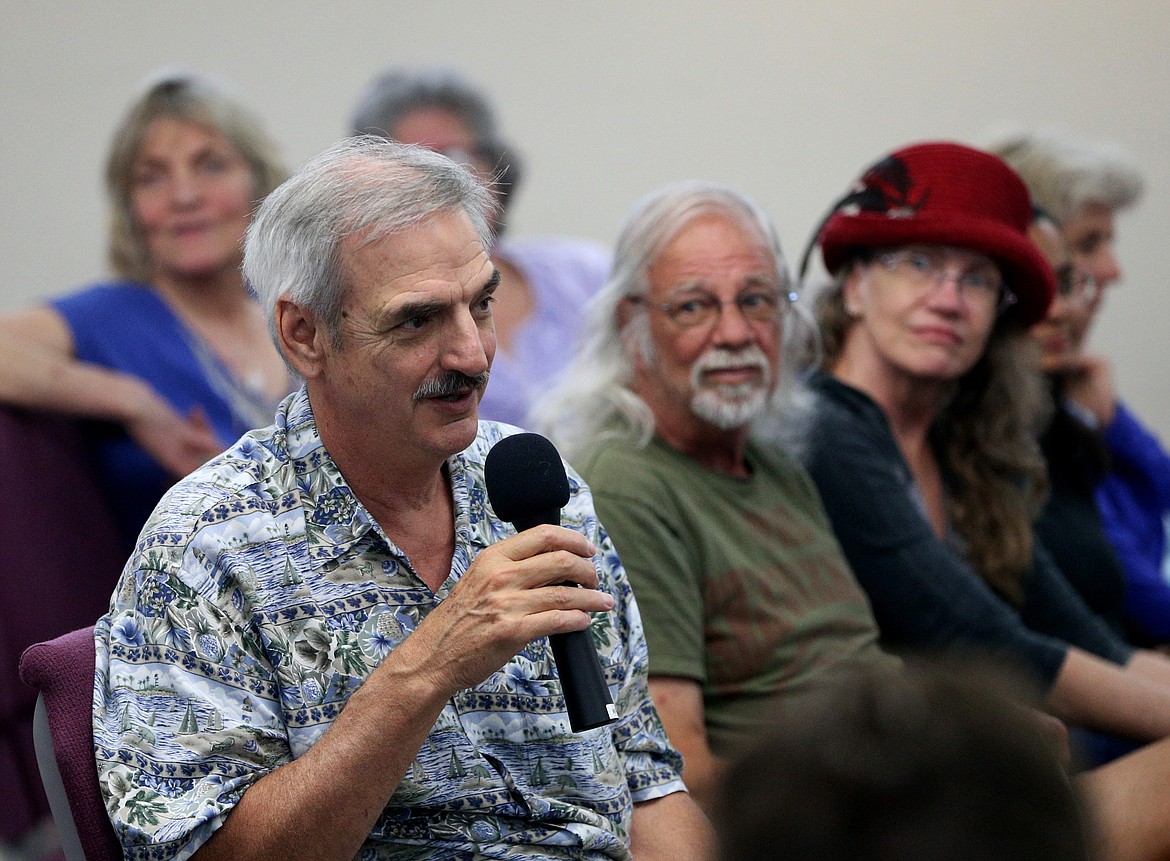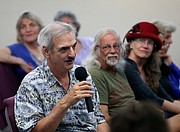'We all bleed the same'
By DEVIN WEEKS
Staff Writer
COEUR d’ALENE — Using nature as a metaphor, Todd Neel provided an insightful thought about diversity Tuesday evening during a question-and-answer session with Moina Shaiq.
“I think about our forest, our woods. Healthy woods are where there’s a variety of trees,” he said. “If it’s one species, that forest is not as healthy as one of rich variety.”
Neel, a board member of Unity Spiritual Center of North Idaho, shared this thought with about 50 others who came to Unity to interact with Shaiq, a Muslim mother of four who is working to open a dialogue with America, dispel myths and improve understanding about the Muslim culture.
“Naiveté is where our lack of understanding is divisive,” Neel said to Shaiq.
“The thing is, we are all ignorant until we educate ourselves,” she responded. “The key is to be open. That’s all we can do.”
Shaiq opened herself up to questions regarding all aspects of her religion and culture during the two-hour Meet a Muslim program. Topics on the minds of attendees included the atrocious acts of violent extremists, how the world changed after the 9/11 attacks, Sharia law (traditional Islamic religious law), what Muslims believe happens when we die and why a Muslim woman wears a head covering.
She told her North Idaho audience that because she is not a scholar, she would not get too deep into the theology of the religion of Islam, despite at least one tenacious attendee who wanted to push the issue.
She said at one of her presentations she was asked why Indonesia, the biggest Muslim country, isn’t more violent.
“I said, ‘You tell me. I think you have the answer better than I do,’” she said. “These other countries that are much smaller in number, in population, that have become violent, are because we are imposing on them. We are poking our nose in their business, we are telling them to do business the way we want to … The thing is, we’re talking about Russia intervening in our elections. How many times have we intervened in other countries’ elections? Do we even know? Do we even care?”
She generally discussed the Five Pillars of Islam, some of the history and some of the differences and similarities between Islam, Christianity and Judaism.
Shaiq, who came to the U.S. from Pakistan 40 years ago, has been traveling the country for more than two years to help people better understand Islam’s followers.
“God has created us in so many different shapes and colors and languages and food and everything. This is our challenge, it’s not easy to embrace everybody, to say, ‘You look different, you dress different, but you are just the same as I am, and you are my sister or brother.’ It’s not easy,” she said. “We have challenges, but we respectfully deal with those challenges. Why don’t we deal with those challenges respectfully within different religions, different faces, different colors? We have to think that we are all children of the same god. He is the one who made us different, that’s all, but we have to look at each other as the same. If I take this headscarf off, I’m going to look like you guys. If I cover my face and just show you my eyes, I’m still going to be the same person inside. I’m not going to be any different.
“We as human beings, we are so forthcoming in judging by appearance,” she continued. “But we don’t see human beings inside. We all bleed the same. We’re all the same. We all know that, but we forget.”



